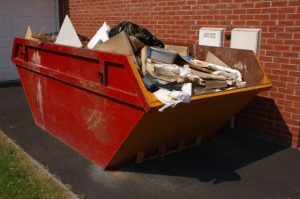What You Can Dispose of in a Skip Bin: A Comprehensive Guide
Skip bins are a convenient and efficient way to manage waste, whether you’re tackling a home renovation, cleaning out your garage, or managing a construction site. However, understanding what you can and cannot dispose of in a skip bin is crucial to ensure compliance with regulations and to avoid additional fees. This guide will walk you through what can be disposed of in a skip bin and how to use these services effectively.
Understanding Skip Bin Regulations
Before we dive into what can be disposed of, it’s important to understand the general regulations surrounding skip bins. Regulations can vary depending on your location and the skip bin provider, so always check with your local waste management authority or skip bin service. Typically, there are restrictions on hazardous materials, certain types of waste, and items that may cause damage to the bin or pose safety risks.
Acceptable Materials for Skip Bins
Skip bins are designed to handle a variety of waste types. Here’s a breakdown of the most common materials you can dispose of in a skip bin:

What You Can Dispose of in a Skip Bin
1. General Household Waste
General household waste includes everyday items such as:
- Food scraps and packaging
- Broken furniture
- Old clothing and textiles
- Books and magazines
- Non-hazardous kitchen items
These items are generally accepted in most skip bins and are ideal for residential clear-outs.
2. Construction and Renovation Debris
Skip bins are especially useful for managing waste from construction and renovation projects. You can dispose of:
- Bricks and concrete
- Timber and wood
- Drywall and plasterboard
- Tiling and flooring materials
- Metal scraps
Make sure to separate these materials if your skip bin service requires it, as some providers may have specific bins for construction waste.
3. Garden Waste
Garden and green waste is another category that is typically accepted. This includes:
- Grass clippings
- Leaves and branches
- Flowers and plants
- Small tree trunks
Garden waste can usually be disposed of in specialized skip bins designed for green waste. Check with your provider to ensure you’re using the correct bin for these materials.
Items That May Require Special Disposal
While many items are acceptable, there are certain materials that may require special handling or separate disposal:
1. Electronic Waste (E-Waste)
Electronic waste such as old computers, TVs, and appliances often contains hazardous materials and should not be placed in regular skip bins. Many areas have e-waste recycling programs or drop-off points where you can dispose of these items safely.
2. Hazardous Materials
Hazardous materials pose safety risks and environmental hazards. These include:
- Paints and solvents
- Batteries
- Asbestos
- Medical waste
- Flammable substances
These items should be handled according to local regulations and often require specialized disposal services. Check with your skip bin provider for guidance on disposing of hazardous materials.
3. Large or Heavy Items
Some skip bins have weight limits or size restrictions. Large or heavy items like:
- Mattresses
- Large appliances
- Vehicle parts
may need to be disposed of separately. Many skip bin companies offer specialized bins or services for these types of waste.
How to Maximize Your Skip Bin Use
To make the most of your skip bin and avoid additional charges, consider these tips:
1. Follow Weight Limits and Regulations
Each skip bin has a weight limit and specific regulations. Ensure you adhere to these limits to avoid overloading the bin and incurring extra fees.
2. Separate and Sort Your Waste
Sorting waste into different categories (e.g., general waste, recyclables, garden waste) can help in managing the disposal process and ensuring that you use the right type of skip bin.
3. Avoid Overfilling
Overfilling a skip bin can cause safety issues and may lead to extra charges. Ensure that the waste is evenly distributed and does not exceed the top of the bin.
Conclusion
Understanding what you can dispose of in a skip bin helps in efficient waste management and ensures compliance with local regulations. While skip bins are versatile and can handle a wide range of materials, it’s crucial to follow guidelines for special items and hazardous materials. By properly sorting and managing your waste, you can make the most of your skip bin service and keep your environment clean and safe. https://woodysskips.com.au/skip-bins-tweed-heads/
